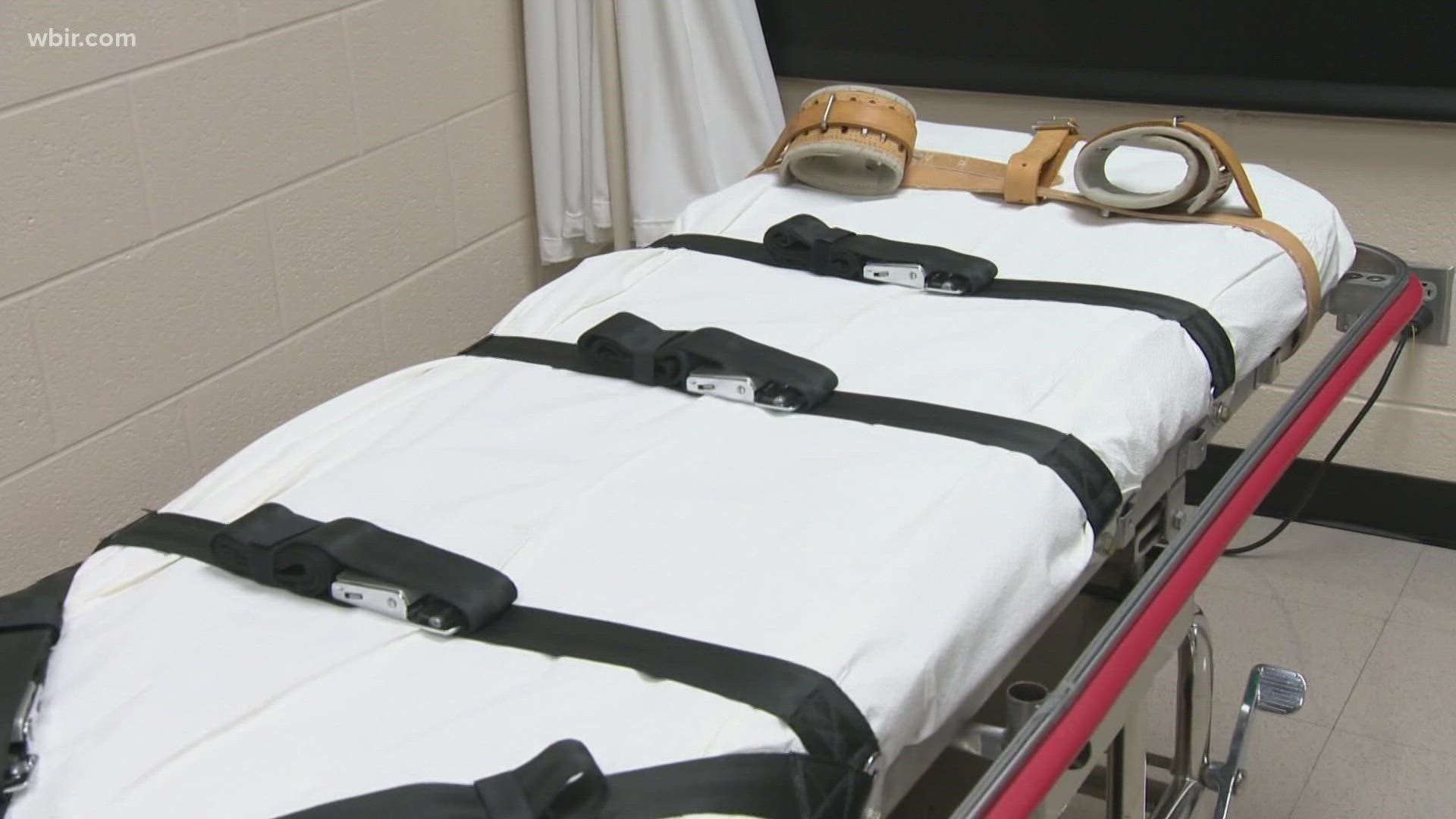NASHVILLE, Tenn. — Tennessee officials say they anticipate that an independent investigation of the state’s lethal injection methods will result in changes to how those executions are carried out, including how the procedures are staffed.
State corrections officials made the statement last week in a federal court filing and a judge on Tuesday agreed to pause litigation challenging the lethal injection protocol while the probe unfolds.
The development comes as Tennessee officials have remained tight-lipped surrounding Republican Gov. Bill Lee's decision last month to abruptly halt the execution of inmate Oscar Smith. The governor's administration has refused to hand over to media outlets an unknown amount of documents through public records requests, though some documents are expected to be released by the Department of Correction later this week. Instead, Lee has ordered an investigation into the issue and paused all executions through 2022.
The investigation is being led by former U.S. Attorney Ed Stanton.
Lee initially said the execution was delayed due to an " oversight in preparation.” He later added last week that the drugs to be used in Smith’s execution were tested for potency and sterility, but not endotoxins, as required by the state’s execution protocols. The state has released little else in the way of specifics about the issue.
While asking a judge to put the litigation brought by death row inmates on hold, for now, attorneys for the state noted the governor has halted executions through this year to allow time for the investigation and for “corrective action to be put in place.”
“It is, thus, clearly contemplated that the independent investigation will result in changes to the ways in which TDOC conducts lethal injection procedures, the ways in which those procedures are staffed, and the personnel responsible for implementing those procedures,” the state's filing says, referring to the Tennessee Department of Correction.
It’s unclear what the state specifically expects to change.
Additionally last week, the state told the court “there may be factual inaccuracies or misstatements” in its previous filings in the case, saying officials will correct them “once the truth has been ascertained.” There was no additional detail about what may have been inaccurate or misstated. Samantha Fisher, a spokesperson for the state attorney general's office, declined to elaborate beyond the wording in the filing.

